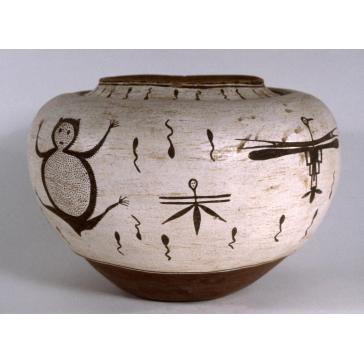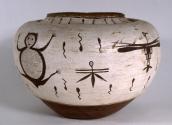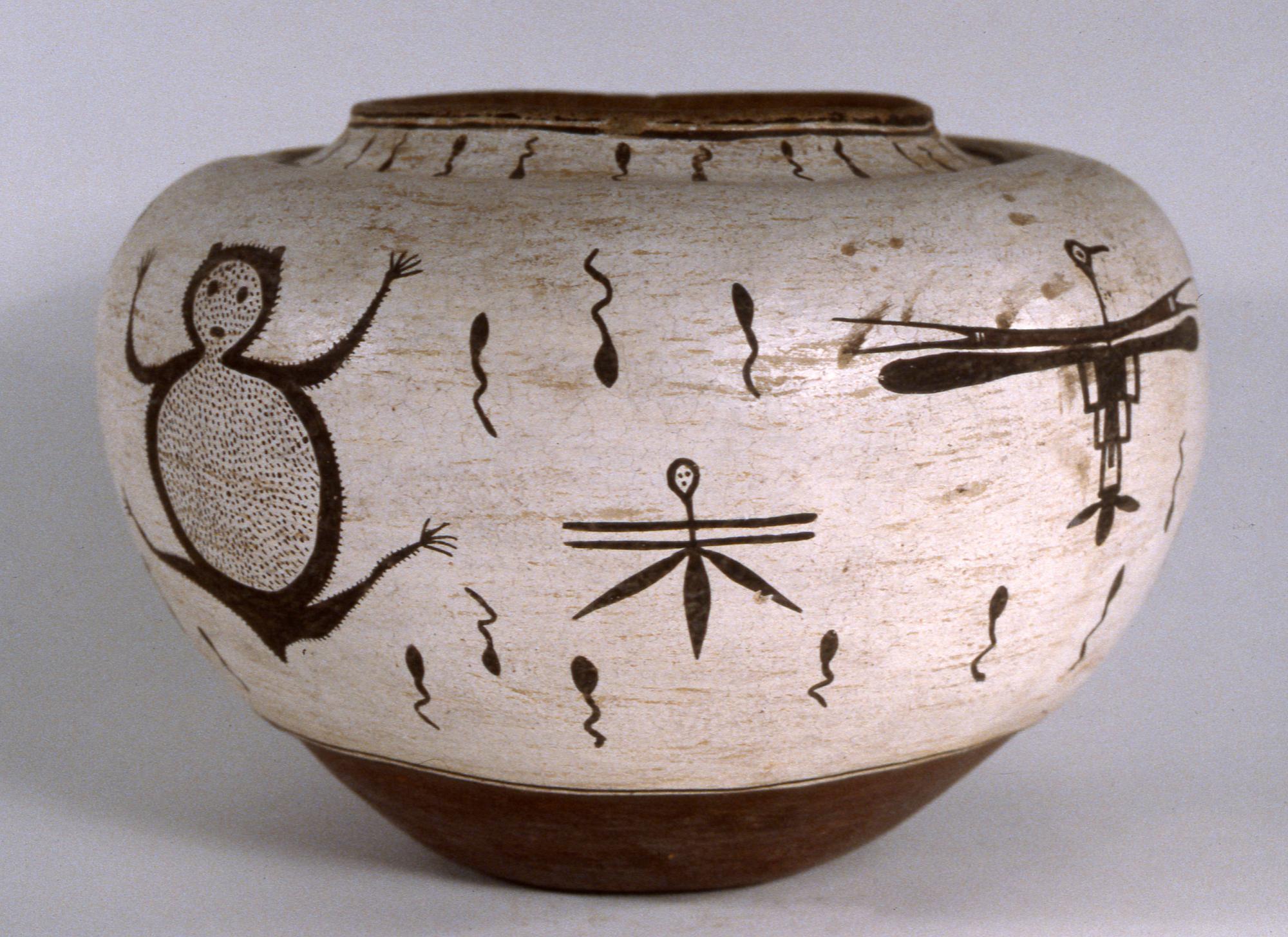
Photograph by Addison Doty. Copyright 2010 School for Advanced Research.
Water jar | K'yabokya de'ele
Date: 1920s
Artist or Maker: Unknown
Dimensions:
Dimensions: 23 × 32 cm (9 1/16 × 12 5/8 in.)
Weight: 3.3 kg (7.35 lb.)
Medium: clay | paints
Place Made:
Zuni Pueblo, McKinley County, New Mexico, Southwest, United States, North America
Object Number: IAF.1231
Not on view
Tribal Collection Review RemarksJim Enote and Octavius Seowtewa during collection review visit April 6 and 7, 2009 (Events Record “Collection Review: Zuni Tribe, Review 1”): This jar is not ceremonial. Though it is classified on the catalog card as Pseudo-Ceremonial, it should no longer be classified this way because it was probably not made with the intention of making the item appear ceremonial. A note in the IAF Catalog entry for it indicates that it was made either by a member of the Rain Clan or for use by the Rain Clan; this information is incorrect because there is no Rain Clan at Zuni. There is a Water Clan, but it is not only associated with rain. This is just a jar that was made to look old.
The word for a water jar in Zuni is “k'yabokya de'ele,” which translates to “water container vessel” in English. The intended use for these jars was to store and carry water, but they could also be used to store other items.
In Collection(s)
The Indian Arts Research Center, in collaboration with Native American community scholars, strives to present accurate collections records. Records may be updated as new information becomes available and is reviewed with the Native American community having cultural affinity to particular items. Please write to iarc@sarsf.org if you have questions or concerns related to the documentation.



